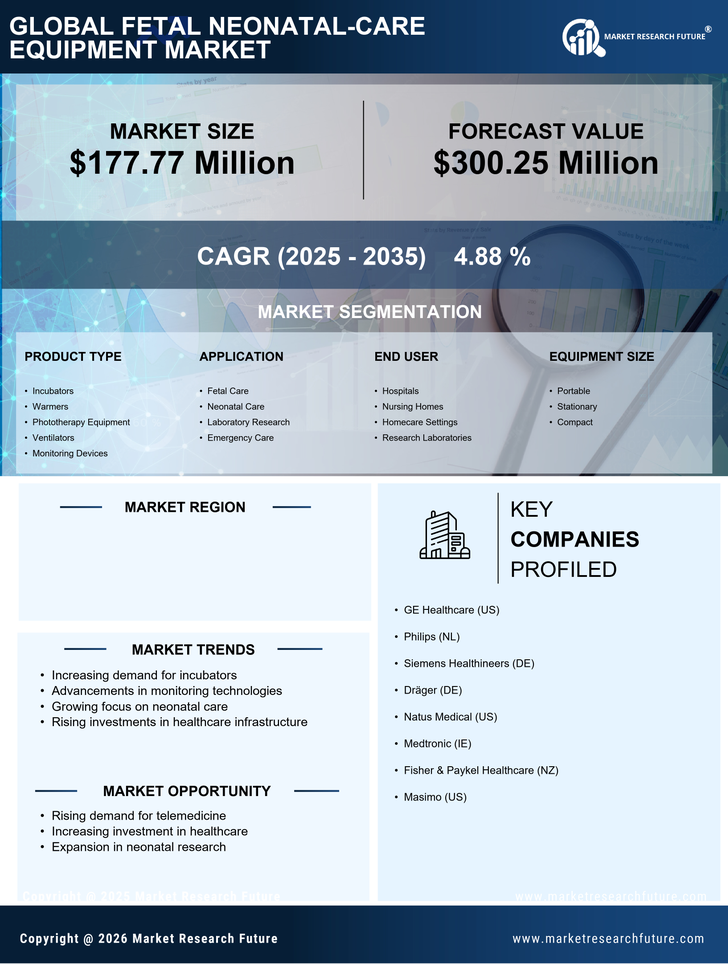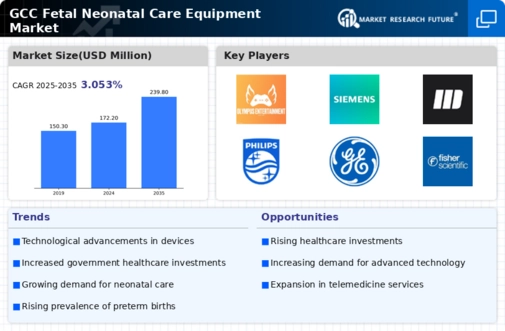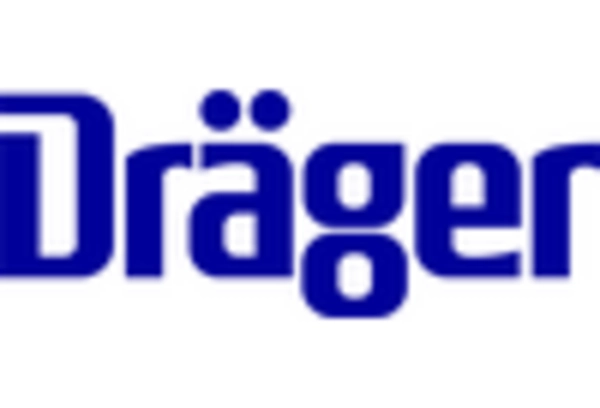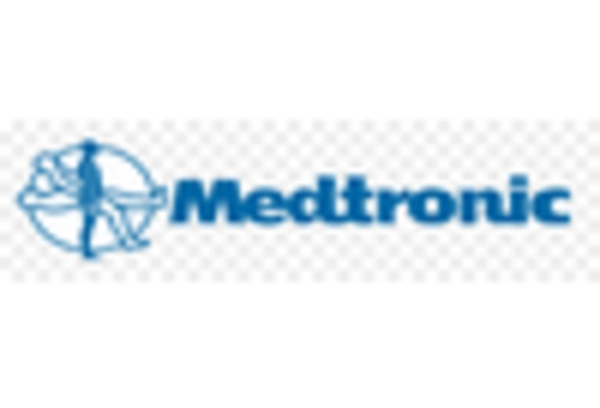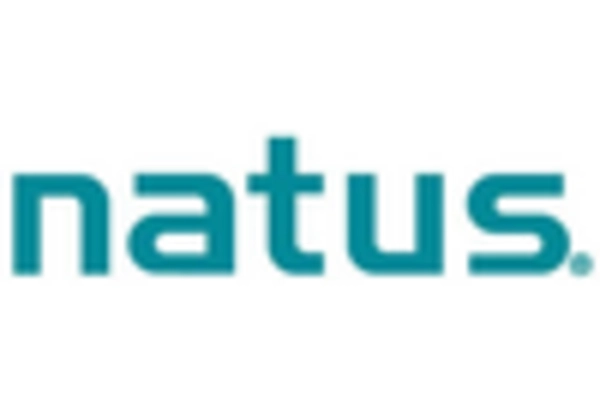Rising Birth Rates
The fetal neonatal-care-equipment market is experiencing growth due to increasing birth rates across the GCC region. Recent statistics indicate that the birth rate in countries like Saudi Arabia and the UAE has shown a steady rise, with figures reaching approximately 18 births per 1,000 people. This demographic trend necessitates enhanced neonatal care solutions, driving demand for advanced equipment. Hospitals and healthcare facilities are investing in state-of-the-art technologies to cater to the growing number of newborns, thereby expanding the fetal neonatal-care-equipment market. Furthermore, the increasing number of maternity hospitals and clinics in urban areas contributes to this growth, as they require modern equipment to ensure the health and safety of infants. As a result, the market is poised for significant expansion in the coming years.
Growing Health Awareness
The rising awareness regarding maternal and infant health is a significant driver for the fetal neonatal-care-equipment market. Educational campaigns and health programs in the GCC are emphasizing the importance of prenatal and postnatal care. This increased awareness is leading to higher demand for specialized neonatal equipment, as parents and healthcare providers recognize the critical role of advanced technology in ensuring the health of newborns. Furthermore, the emphasis on early detection and intervention for potential health issues is prompting hospitals to invest in modern fetal neonatal-care equipment. As a result, the market is likely to see a surge in demand, as healthcare facilities strive to meet the expectations of informed parents and healthcare professionals.
Technological Innovations
Technological advancements play a crucial role in shaping the fetal neonatal-care-equipment market. Innovations such as portable ultrasound devices, advanced incubators, and non-invasive monitoring systems are becoming increasingly prevalent. These technologies enhance the quality of care provided to newborns, leading to better health outcomes. For instance, the introduction of telemedicine solutions allows healthcare providers to monitor infants remotely, which is particularly beneficial in rural areas of the GCC. The market is projected to grow at a CAGR of around 7% over the next five years, driven by these technological innovations. As healthcare providers seek to improve neonatal care, the demand for cutting-edge equipment is likely to rise, further propelling the fetal neonatal-care-equipment market.
Government Healthcare Investments
Government initiatives aimed at improving healthcare infrastructure significantly impact the fetal neonatal-care-equipment market. In the GCC, various governments are allocating substantial budgets to enhance maternal and child health services. For example, Saudi Arabia's Vision 2030 emphasizes the importance of healthcare development, which includes investments in neonatal care facilities. This commitment is expected to lead to an increase in the procurement of advanced fetal neonatal-care equipment. Additionally, public-private partnerships are emerging, facilitating the introduction of innovative technologies in hospitals. As a result, the fetal neonatal-care-equipment market is likely to benefit from these investments, ensuring that healthcare providers are equipped with the necessary tools to deliver high-quality care to newborns.
Rising Incidence of Premature Births
The fetal neonatal-care-equipment market is also influenced by the increasing incidence of premature births in the GCC region. Recent data suggests that approximately 10% of all births in the region are preterm, necessitating specialized care and equipment to support these vulnerable infants. Hospitals are increasingly recognizing the need for advanced neonatal care solutions, such as incubators and respiratory support systems, to address the challenges associated with premature births. This trend is likely to drive the demand for fetal neonatal-care equipment, as healthcare providers seek to improve survival rates and health outcomes for preterm infants. Consequently, the market is expected to expand as facilities invest in the necessary technologies to provide adequate care for this growing population.
